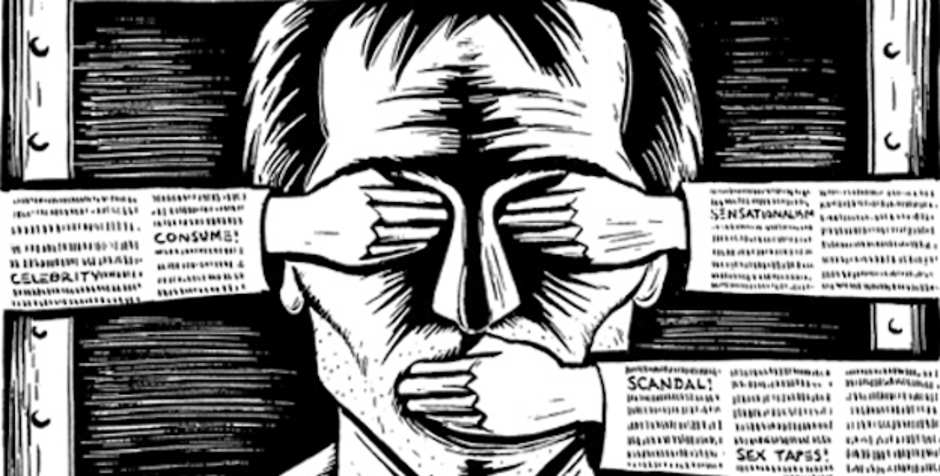

Crime of obstruction to abortion: A halftone decision by the Constitutional Council
Obstruction Const. Council's decision
Interview given by Dr Puppinck to Génèthique on the 17th of March 2017.
Crime of obstruction to abortion: suppression of the crime of opinion but control of information. A halftone decision by the Constitutional Council.
The law widening the crime of obstruction to the internet was approved this Thursday by the Constitutional Council with two reservations: if the decision preserves freedom of opinion, notably on the Internet, it fully maintains the possibility to repress personalised counselling services. The law is still hazy and discriminatory (see in French Le Conseil Constitutionnel juge conforme le délit d'entrave mais émet deux réserves). Grégor Puppinck, PhD in Law and Director of the European Centre for Law and Justice (ECLJ- Strasbourg) analyses for Génèthique the decision of the Constitutional Council.
Gènéthique: The Constitutional Council has just approved the law aiming at widening the crime of obstruction to abortion to the internet with two reservations? Is this something to rejoice in?
GP: The Constitutional Council approves the law while reducing the impact of the modification brought by the widening of the crime of obstruction to the internet.
By its interpretation, the government and current parliamentary majority suffer a humiliation with the decision of the “wise” (nickname of the members of the Constitutional Council), because their reservations censor an essential component of their law. The information available to an unspecified audience –for example on the internet– are not threatened anymore. From this point of view, one can rejoice in this decision. It gives justice to the numerous criticism heard during the parliamentary debates against this liberticidal text.
Yet one must underline that the interpretation of the Constitutional Council maintains the crime against “information” addressed to a “determined” audience by people having real or supposed expertise on the subject. Hence the law still aims the counselling and helpline services, the Freephone numbers that are displayed on pro-life websites. The people who answer these Freephone numbers to listen to and counsel the women who call spontaneously will now face being criminally prosecuted as soon as their words may be interpreted as aiming at intentionally mistaking people to dissuade them. It severely limits their possibility to try to convince these women not to abort. Yet the law can also apply to any other means of communication.
G: Does this decision of the Council solve all the issues raised by this law?
GP: No. This law is still deeply problematic. It is still incomprehensible, very chaotic, and poorly written in its structure. It does not allow to clearly know what is forbidden. It questions the legal security of people who want to act for the prevention of abortion. Indeed, the constituent elements of the crime are hazy, which prompts fears of an arbitrary application. The definition of the crime does not allow people to adapt their behaviour to avoid being punished. This legal insecurity immediately implies a penal risk upon people who act with women to help them carry on with their pregnancies. Nothing is more vague than the notion of “assertions, indications or presentations distorted and aiming at intentionally mistaking people on the characteristics or medical consequences of a voluntarily termination of pregnancy”. This notion conveys the idea that there would be an official truth regarding abortion, to which everyone should adhere. It makes it possible to sue people for saying that abortion kills a human life, or that it can lead to a post-abortion depression.
G: What are the concrete implications of these ambiguities?
GP: Concretely, if one says “an abortion ends a life”, is it an assertion which exerts a moral pressure? This sentence can make people think about it, so it’s a moral pressure. How far is it of an assertion? The constitutive elements of the crime of obstruction are extremely vague...
G: This is not the only point which is still problematic?
GP: No, indeed. This penal law is still discriminatory, because it is unilateral: it only sanctions the speech that have a “deterrent aim”, and not those with an “incentive aim”, and which minimise, and even deny the less pleasant aspects of abortion. To incite somebody to abort while hiding or minimising the consequences of this act escapes the ambit of this law. There is then a discrimination based on opinion between the “pro-abortion” messages, which are spared by this law, and those with a “pro-life” message, which are the only ones to fall within its ambit.
G: Does that mean that it will not be possible to do prevention anymore?
GP: It will indeed become risky to directly try to prevent women in distress. There will most probably be testing operations with recordings of phone discussions to condemn the volunteers who donate their time to listen to these women. The law also threatens the “street counselling” which is made near the abortion clinics.
The very possibility to directly help women in distress is being undermined.
Despite the decision of the Constitutional Council, the heart of the problem remains, this law seriously interferes with the possibility for associations to help women in distress to keep their children.
G: The question of the sentences imposed hasn’t been addressed by the Constitutional Council?
GP: No. It is true that the sentences are very heavy compared to what is usually done.
G: What are the next steps?
GP: The law will be promulgated as early as next week and will immediately come into effect. I think we will very quickly see testing operations of the Freephone numbers and criminal prosecutions.
Translation by BMG












